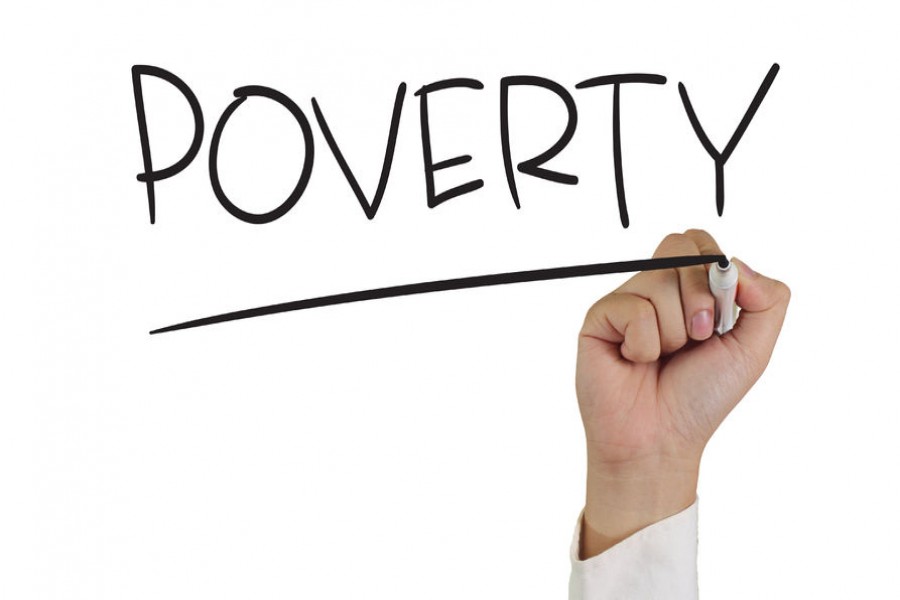Just when poverty-reduction efforts around the world were already slowing, recent forecasts indicate that the global economy is heading into a period of deepening uncertainty. That makes measures to boost growth and expand economic opportunity all the more urgent - which is why revitalising trade must be high on the global policy agenda. The evidence is clear: as an engine of economic growth and a critical tool for combating poverty, trade works.
With today's trade tensions, it is easy to lose sight of the progress the world has made over the past few decades of economic integration. Since 1990, more than one billion people have lifted themselves out of poverty, owing to growth that was underpinned by trade. And today, countries are trading more and deepening economic ties even faster than in past decades. There are currently more than 280 trade agreements in place around the world, compared to just 50 in 1990. Back then, trade as a share of global gross domestic product (GDP) was around 38 per cent; in 2017, it had reached 71 per cent.
Open trade is particularly beneficial to the poor, because it reduces the cost of what they buy and raises the price of what they sell. As new research from the World Bank and the World Trade Organisation (WTO) makes clear, farmers and manufacturing workers earn more income when their products can reach overseas markets.
In Vietnam, for example, a series of trade reforms in the 1980s and 1990s helped transform the country into an export powerhouse, sharply reducing poverty there. Today, Vietnam's exports generate 30 per cent of its enterprise-sector employment; and its trade-to-GDP ratio - a key indicator of an open economy - is approximately 200 per cent, the highest among all middle-income countries.
Likewise, a separate study of manufacturing in 47 African countries found that employees at export-oriented firms earned 16 per cent more than workers at non-exporting firms. And while men and women working at trading firms received similar wages, men at non-trading firms earned more than women.
Evidence like this demonstrates the promise of open trade. But the poor do not benefit from trade automatically. In fact, our research points to serious challenges. For example, some groups of workers may lose income as a result of increased import competition. And others will encounter "behind the border" barriers - such as limited competition in transportation and distribution, weak infrastructure, or lack of information about new opportunities - that can negate the benefits of trade.
Finally, our research shows that trade can have an uneven impact on the poor, depending on specific circumstances such as one's access to trade-supporting infrastructure, one's gender, or whether one lives in a rural or urban area. Such dynamics are clearly discernible in India, where goods produced in rural households face a tariff rate in international markets that is 11 percentage points higher than that for goods produced in urban households.
Similarly, on the border of Laos and Cambodia, women pay higher taxes to customs officials, and their goods are more likely to be quarantined than those that are traded by men. In Uganda, where 70 per cent of the population is employed in agriculture, the low quality and high cost of transportation prevents most producers from getting their products into the hands of foreign customers.
With appropriate trade reforms, governments can loosen such constraints, while also lowering transaction costs, promoting competition, and setting clear rules for cross-border commerce. We know that open trade can drive development. But passively counting on exports to boost economic growth and reduce poverty is not enough. We need to push harder for reforms to lower tariff barriers and remove trade-distorting regulatory measures. And more must be done to facilitate investment in infrastructure such as roads, shipping routes, and e-commerce systems that connect people to markets.
Unfortunately, recent WTO forecasts show that the growth of global trade is slowing, imperilling prospects for faster economic growth and poverty reduction. We urgently need to address the roots of global trade tensions, strengthen the rules-based trading system, and pursue further trade liberalisation. Experience shows that this is the most effective way to drive inclusive and sustainable economic growth, create new opportunities, and bring us closer to our shared goal of finally ending extreme poverty.
Caroline Freund, a former senior fellow at the Peterson Institute for International Economics, is Director of Trade, Regional Integration and Investment Climate at the World Bank. Robert Koopman is Chief Economist and Director of the Economic Research and Statistics Division of the
World Trade Organisation.
Copyright: Project Syndicate, 2019.
www.project-syndicate.org
distribution@project-syndicate.org


